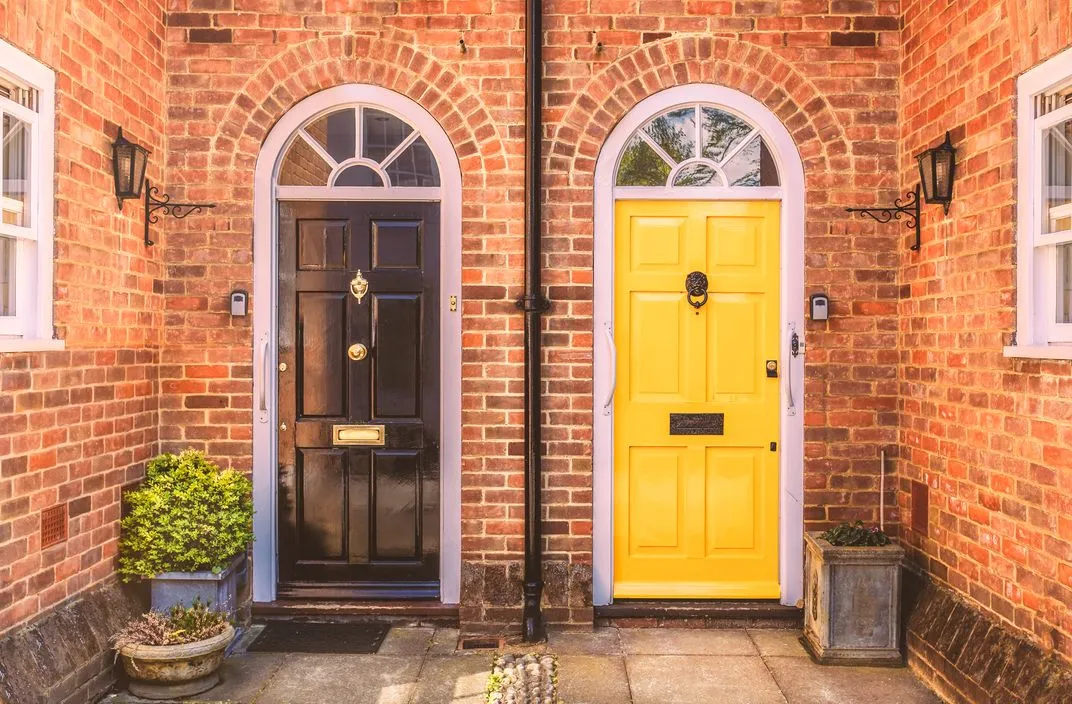Step-by-Step Guide to The Stages of Conveyancing
29 February 2024 • 10 min read

See what our customers have to say about us
Conveyancing covers the legal and administrative processes by which the ownership of a home is transferred safely from one person to another. It is our intention to ensure that your move proceeds smoothly and that ownership passes from the seller to the buyer. It is important for all parties concerned to have some understanding of the conveyancing process.
To help your sale or purchase transaction proceed smoothly and with as little stress as possible, we have produced this step-by-step guide with our best conveyancing advice.

Step 1: Instructing a Conveyancing solicitor and initial stages
Firstly, you need to instruct a conveyancing solicitor to help you sell or buy your house, so once you secure a buyer or purchaser, they will be able to move to the next step immediately.
The solicitor will send you several questionnaires for completion. Here, the buyer and their solicitors will rely upon your full and correct replies in deciding whether to proceed and, if so, on what terms. Incorrect or misleading responses may result in the buyer being entitled to claim damages/compensation or even refusing to complete the purchase from you after the exchange of contracts.
For preliminary matters, if you are selling your property, you must commission an Energy Performance Certificate (EPC) before you put your property on the market. In any event, you must produce the EPC to the buyer before the exchange of Contracts.
Speedy return of the forms will enable us to obtain your deeds, assess your current mortgage(s), and assemble the information needed to prepare the contract for sale. Please note that in almost every case, when a property is sold, all mortgages or loans secured against the property must be repaid on completion. We will only repay mortgage/secured loans on completion. We will not deal with any debt or loan which is not charged upon the property title.
Step 2: Enquiries and conveyancing searches
The seller’s solicitor’s task at this stage is to obtain the certificate of ownership (title deeds), their Building Society, Bank or the Land Registry, together with a large amount of information. They will then prepare a contract for the sale of the property and will send the buyers’ solicitors information about the property, comprising proof of ownership, a list of contents to be included in the sale and a host of other points relating to boundaries, neighbours, planning, rights of way etc.
As part of the conveyancing process, there are always searches when buying a house to make sure there are no adverse matters that the buyer should be aware of, as there are things you may not have noticed about the property when viewing it with an estate agent. Some of the searches could be Environmental Matters, Local, Drainage, Mining, and Chancel Searches; these are things you should consider with great care before committing to buy.
If there are queries on the property, this process can become quite long. In a chain of transactions with several people moving simultaneously and dependent upon each other, the whole chain can only proceed at the speed of the slowest person in the chain. In total, the conveyancing searches usually take 2-6 weeks to complete.
Step 3: Securing your mortgage and house survey
Once we have received the results of the searches, a report of the property is created. Then the buyer will apply for a mortgage. It is essential that your lender is provided with all the correct, requested information. They will then conduct a valuation of the property to ensure it is worth the agreed sum and in the lender’s best interest to give a mortgage.
If the valuer misses important items or defects, it is most unlikely that the buyers will be able to take any action against the valuer at a later date. Therefore, the buyers must arrange a more detailed survey of the property, either a Home Buyers’ Survey or, in some cases, a building survey, to understand the building they are buying and its costs.
When the buyers apply for a mortgage, they will usually be able to ask the lender’s surveyor to carry out a Home Buyers’ Survey at the same time as the valuation. However, the buyers can arrange this independently if they so wish. Arranging a mortgage takes approximately 4 weeks in total.

Step 4: Signing the Contract
Once the buyers’ solicitors have received all the paperwork from the sellers’ solicitors, together with the result of the searches and a copy of the buyers’ mortgage offer, they will arrange to go through all the documentation with the buyers or send the buyers a written report to advise them fully about the property and to discuss a number of other issues as follows:
1. Do I need buildings insurance?
It is important that the building’s insurance arrangements are made at an early date. If you choose to have a mortgage, the lender will insist on the property being insured. It may be cheaper to make your own insurance arrangements, however.
You also may need to start the insurance from the exchange of contracts. If in doubt, check with your lender or us.
If you are not getting a mortgage or choose not to let the lender deal with insurance, you will be responsible for the necessary arrangements. The contract will provide that if the property is damaged or unusable between the date of the contract and completion, the buyer will nevertheless be obliged to complete the purchase. The seller has no obligation to the buyer to insure, other than in certain circumstances where the property is leasehold. Therefore, the buyer must have their own cover from the exchange of contracts.
2. Mortgage repayment
By this time, the buyer has discussed with the lender the arrangements you wish to make to repay your mortgage. Suppose this is to be in conjunction with a savings policy, a life insurance policy, a pension, or any other similar policy. In that case, arrangements must be in place by this stage.
3. Options on ownership
If there is more than one buyer, you will be “joint owners”. There are two methods of jointly owning property, and you must discuss these with us. Sometimes it might be sensible to consider putting the property in the name of a relative, for example, your adult children. Please discuss with us at an early stage if this is a possibility.
4. Deposit
The contract you sign will provide that you will pay a 10% deposit of the purchase price to enable the exchange of contracts. If you borrow more than 90% of the purchase price, your solicitor will have to negotiate a reduced deposit on exchange of contracts. If you are buying and selling, the deposit paid by the person at the bottom of the chain is usually passed up through the chain. This means that one or more parties will likely accept a reduced deposit. Please be aware that if you pay a reduced deposit, the seller can normally claim the balance of 10% off you if there is a later problem.
5. Money
It is important to ensure that the money for the deposit and/or the purchase of the property is not locked away in a Bank or Building Society requiring several weeks or months’ notice to extract it. We will require any cheques to be used in connection with the purchase at least seven working days before the completion date.
6. Wills
Ifyou have not already made a will, it is wise to consider the implications of your proposed purchase in the event of your death. If you have already made a will, it would be prudent for you to consider whether any amendments should be made in light of the transaction.
Once the buyer’s solicitors have dealt with all these points, the buyers will be asked to sign the contract to buy the property.
It is important to note that signing the contract is not the same as an exchange of contracts. Only once the contracts have been exchanged does the deal become legally binding; both parties will sign their own contract sometime before.
Step 5: Exchange of contracts
Once the buyers’ and the sellers’ solicitors are satisfied that everything is in order, they will then arrange an exchange of contracts. At that stage, the date for moving (the completion date) is inserted in the contract. It is vital to remember that until the contracts have been exchanged, both you and your buyer are not legally committed to proceed. Up to that point, either party may withdraw.
It is also wise to bear in mind that a gap of at least seven days and preferably longer should be left between the exchange of contracts and completion since neither party is guaranteed a particular completion date until the formal exchange of contracts has taken place. On average, the exchange of contracts to completion is usually 1-2 weeks.
Following the exchange of contracts, all parties involved are aware that the matter is to be completed on a particular day. The solicitors on both sides will be busy dealing with various administrative tasks, including obtaining the money from the lender if there is a mortgage. By the completion date, the buyer’s solicitors will have received sufficient money from the buyers and their lenders to enable them to pay for the property.
Step 6: Completion – the big day!
Prior to the completion of your purchase, we will send you a completion statement. If there is money due from you to complete the transaction, then we must receive payment of this sum in full a few days before completion so that we have cleared funds in time for completion. It is your responsibility to ensure that you have available all the money needed to pay the balance of the purchase price, including our fees, but excluding the amount of your mortgage loan (if any).
The buyer’s solicitors will, on the completion date, transfer to the seller’s solicitors sufficient money to buy the property. In return for the money, the buyer’s solicitors will receive the legal transfer document, together with all the other relevant documents for the property. And for the seller’s solicitors to authorise the seller or their estate agents to hand over the keys to the buyers. It is important for the sellers to be aware that they should not authorise the release of the keys until they know that we have received the money for the property. Find out more about what happens on completion day.
Step 7: After completion
Both the sellers and buyers would have reached their goal once the completion has taken place. The sellers will have their money, and the buyers will have the houseand usually a mortgage to pay. The buyer’s solicitors, however, have a number of tasks to perform after completion, including the payment of any stamp duty land tax, the registration of the property at the Land Registry and notification of the freehold owner if the property is leasehold.
This is a general guide to a basic form of transaction, which we hope you have found to be helpful. Although the administrative and legal procedures in each transaction are similar, every single piece of property is different. It goes without saying that all sellers or buyers have their own particular expectations and requirements.
The average time for the complete conveyancing process is usually 8-12 weeks. However, Muve offers a ‘Fast’ upgrade as part of their service. This upgrade guarantees exchange in 5 weeks for a freehold property and 8 weeks for a leasehold, or you get your upgrade fee back for every week over the timeline.
Please don’t hesitate to get in touch for more information regarding the process, conveyancing advice, and to meet our team.

You might also like
Conveyancing is a number of legal and administrative steps needed to transfer a property ...
A fixed-fee conveyancing service provides cost certainty. It allows buyers and sellers to plan ...

